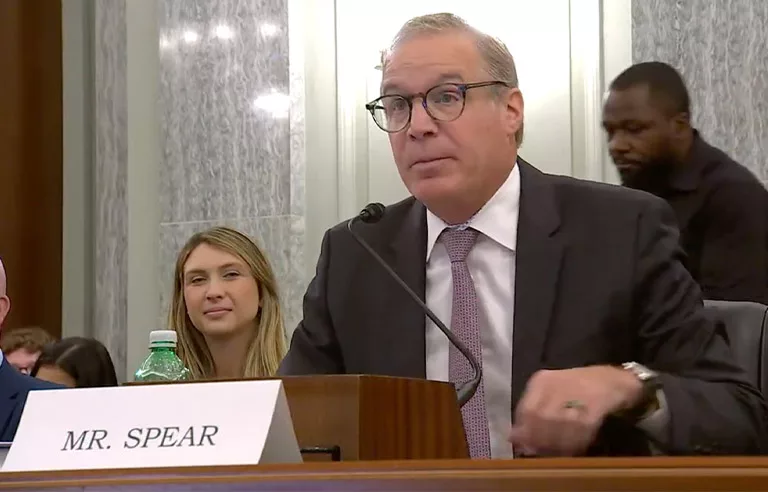
Photo: Senate Committee on Commerce, Science, and Transportation
Washington — Advances in autonomous trucking technologies “offer opportunities to help improve the safety and productivity” of the industry and “do not mean that all vehicles will become ‘driverless,’” a trucking industry representative says.
American Trucking Associations President and CEO Chris Spear testified during a July 22 hearing before the Senate Surface Transportation, Freight, Pipelines and Safety Subcommittee. Spear encouraged lawmakers to embrace regulations governing evidence-based safety technologies, assuring Congress that they won’t displace the people behind the wheel.
“Driver responsibilities may adjust over time with deployment of automated technologies, but the industry will continue to need drivers, our greatest asset,” Spear said. “The trucking industry has a substantial stake in the enhancements to road safety that automated and connected vehicle technology will provide. America’s roads and bridges are truck drivers’ workplace, and safety is paramount.”
Spear and International Brotherhood of Teamsters General President Sean O’Brien, a longtime trucker and fellow witness at the hearing, became involved in an indirect exchange on the topic through questioning from Sens. Gary Peters (D-MI), ranking member of the subcommittee, and Ted Cruz (R-TX), chair of the Senate Commerce, Science and Transportation Committee.
Both requested priorities for a potential framework for the federal regulation of autonomous trucks.
“We feel strongly that the biggest threat to the trucking industry is autonomous commercial vehicles not requiring human operators,” O’Brien said. “So, that’s a priority to make certain that we have human operators in these vehicles.”
He added: “It’s a public safety issue. We’ve talked to many law enforcement groups regarding their concerns regarding autonomous commercial vehicles, and it’s a real concern if you have a family of four driving down the road. Right now, the best computer and the best reaction is a human operator. We’ve all seen how in certain situations where technology has failed in testing of such vehicles with autonomous drivers.”
Spear testified that he believes the capability for fully autonomous trucks is still 10-15 years away, but even then, technology will complement human operators. In the meantime, he’s calling for firm, centralized regulation that values safety while welcoming innovation.
“Interstate commerce, you’ve got to protect it,” Spear said in response to questioning from Cruz. “We need one standard, not 50. Right now, you have 16 states that have automated vehicle laws on the books.”
O’Brien later clarified the Teamsters’ position: “We understand technology is coming and we’re not trying to impede any type of technology that is going to make business more efficient.”
McCraren Compliance offers many opportunities in safety training to help circumvent accidents. Please take a moment to visit our calendar of classes to see what we can do to help your safety measures from training to consulting.
Original article published by Safety+Health an NSC publication


